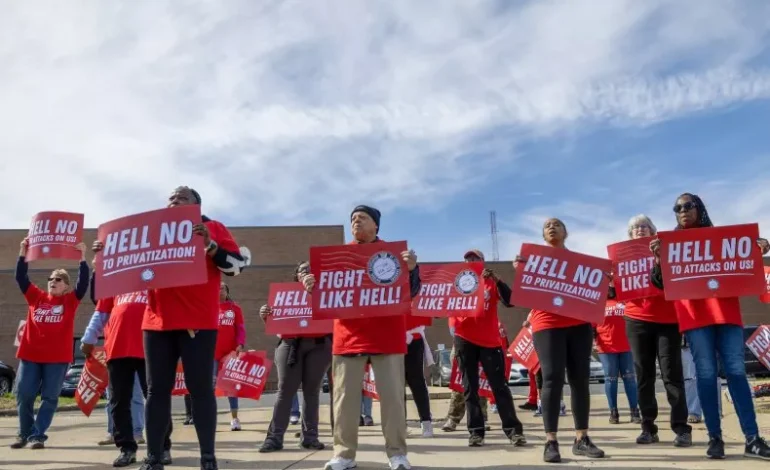Protests broke out across the United States on Sunday as postal workers and their supporters rallied against proposed changes to the United States Postal Service (USPS), Newsweek reports.
The demonstrations, organized by the National Association of Letter Carriers (NALC) in over 200 cities, aimed to push back against potential privatization and restructuring efforts that protesters say could threaten jobs and essential mail services.
The protests were sparked by reports that President Donald Trump is considering moving the USPS to the Department of Commerce, with some allies supporting a privatization plan. Earlier this month, Postmaster General Louis DeJoy told Congress that USPS will cut 10,000 jobs through a voluntary early retirement program in the coming weeks. He also confirmed that the agency would collaborate with Elon Musk’s Department of Government Efficiency to address longstanding financial issues.
Workers fear that these changes could weaken the USPS and limit its ability to serve millions of Americans, particularly in rural areas. The NALC flyer advertising Sunday’s protests described privatization as a “direct threat” to 640,000 postal employees, millions of households, and businesses across the country. The flyer also noted that the US Constitution grants Congress—not the president—the authority to shape postal policy, making privatization “illegal and unconstitutional.”
Postal workers and supporters rallied in Chicago, Boston, Los Angeles, Nashville, Houston, Washington, D.C., and other cities, with participants expressing strong opposition to proposed changes.
In Chicago, workers wearing red shirts reading “Fight Like Hell” packed Federal Plaza, with the Chicago Federation of Labor posting on social media:
“You’re in for a FIGHT if you think you’re gonna privatize the USPS! Hell no!!! Hands off our postal service!”
Lawmakers also joined protests in various cities. Senator Tina Smith of Minnesota described efforts to restructure the USPS as a “hostile takeover,” while Representative Al Green of Texas vowed to oppose privatization and job cuts. In Houston, postal service veteran Willy Ferguson told protesters:
“The public doesn’t want the postal service to be dismantled, and they certainly don’t want it to be sold off in bits and pieces.”
President Donald Trump has defended his administration’s plans, stating:
“We want to have a post office that works well and doesn’t lose massive amounts of money… It’ll remain the Postal Service, and I think it’ll operate a lot better.”
Meanwhile, Elon Musk has been vocal about his support for privatization, saying at a recent conference:
“I think logically we should privatize anything that can reasonably be privatized. The Post Office and Amtrak, for example.”
In contrast, Senator Dick Durbin emphasized the constitutional role of the USPS, arguing that it should remain independent from political influence. Representative Gwen Moore echoed this sentiment, stating:
“HELL NO to Trump’s plans to privatize USPS. The postal service is right there in the Constitution. It is meant to serve the American people in every zip code.”
Postmaster General Louis DeJoy has indicated that the 10,000 job cuts will be implemented by mid-April, but further details remain unclear.










The latest news in your social feeds
Subscribe to our social media platforms to stay tuned